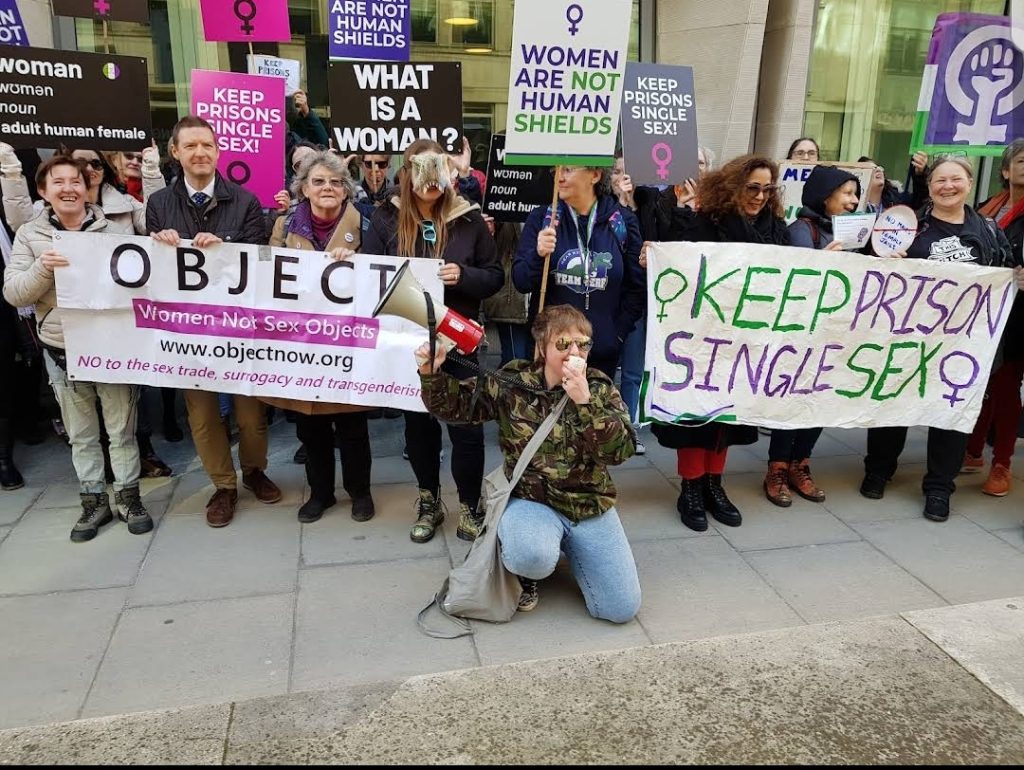
In recent years, the conversation around “gender” has shifted dramatically. What was once a fight for women’s rights—centred on securing protections, opportunities, and spaces for women—has increasingly been overshadowed by the rise of gender ideology.
This ideology asserts that self-identification should override biological sex in legal and social contexts, sparking significant debate, particularly among feminists and women’s rights advocates.
For many women, including those in grassroots feminist movements, gender ideology presents a direct challenge to hard-won rights. The push to replace sex-based protections with gender identity policies has had real-world consequences: from the erosion of single-sex spaces to the silencing of those who question these changes. Women who speak out—whether in public forums, at protests, or within feminist circles—often face harassment, job loss, and social ostracisation.
Some have even been physically assaulted for refusing to comply with this ideology.One documented case is that of feminist writer Julie Bindel, who was physically attacked after speaking at an event opposing gender self-identification policies. As she waited for a taxi, a man dressed in women’s clothing verbally abused her, calling her a “Nazi” and “Terf scum,” before lunging at her. This is just one example of the violence faced by women who stand up for their rights.
The problem extends beyond verbal and physical abuse. Women’s spaces in politics, sport, healthcare, and even support groups for miscarriage, stillbirth, and menopause have been infiltrated by men who claim to be women—deeply vulnerable spaces where women seek support from those who truly understand their experiences.
Even women’s prisons have been affected, with tragic consequences. Karen White, a male prisoner who identified as female, was placed in a women’s prison, where he went on to sexually assault female inmates.
Cases like this have forced institutions to reconsider policies that allow self-identification to determine access to female spaces. Meanwhile, in the UK, a domestic abuse charity recently banned trans-identified males from its services, acknowledging the dangers of allowing men into spaces meant to protect vulnerable women.
In sport, the consequences have been even more physically devastating. The inclusion of men in women’s sport is not just unfair—it is dangerous.
Girls have suffered significant injuries from competing against boys pretending to be girls, including concussions, broken bones, and severe bruising.Former NCAA swimmer Riley Gaines has spoken out about the unfairness and risks of including men in women’s sport. She has called on high-profile female athletes like Caitlin Clark and Simone Biles to take a stand against these policies.
Meanwhile, Texas Attorney General Ken Paxton has urged the NCAA to implement biological sex screenings to ensure fairness in women’s sport.
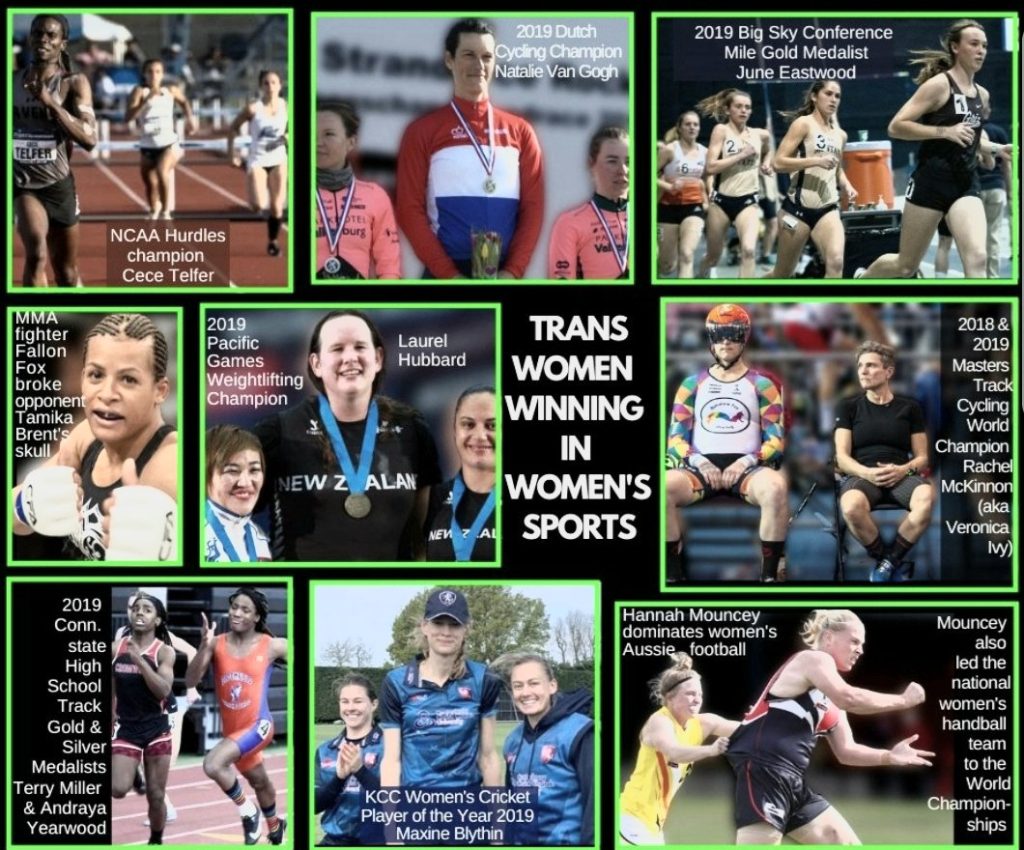

Beyond policy changes, gender ideology is erasing women in language itself. Increasingly, the word “woman” is being replaced with dehumanising terms such as “womb-haver,” “gestational carrier,” and “menstruator.”
These phrases reduce women to biological functions while paradoxically insisting that “woman” is merely an identity. This linguistic shift has real consequences, undermining efforts to fight for women’s rights when we can no longer even name ourselves.
The influence of gender ideology has permeated educational settings, raising concerns among parents and educators. In England, the government has issued guidance to prevent the teaching of “gender ideology” that ignores biological sex in schools. Education Secretary Gillian Keegan emphasised that while students can learn about gender reassignment surgery, the promotion of gender identity as a spectrum is discouraged.
In some instances, educational materials have been criticised for introducing complex gender concepts to young children. For example, Home Depot partnered with the Human Rights Campaign’s “Welcoming Schools” programme, which provided resources to primary schools on topics like pansexuality and non-binary identities.
One widely used teaching tool is the ‘Genderbread Person’, a diagram that attempts to explain gender identity, gender expression, biological sex, and sexual orientation as existing on separate spectrums.
While some educators argue it promotes inclusivity, critics believe it confuses young children and pushes an ideological agenda rather than providing factual education. The use of this material in schools has sparked backlash from parents concerned that it blurs the lines between education and activism.
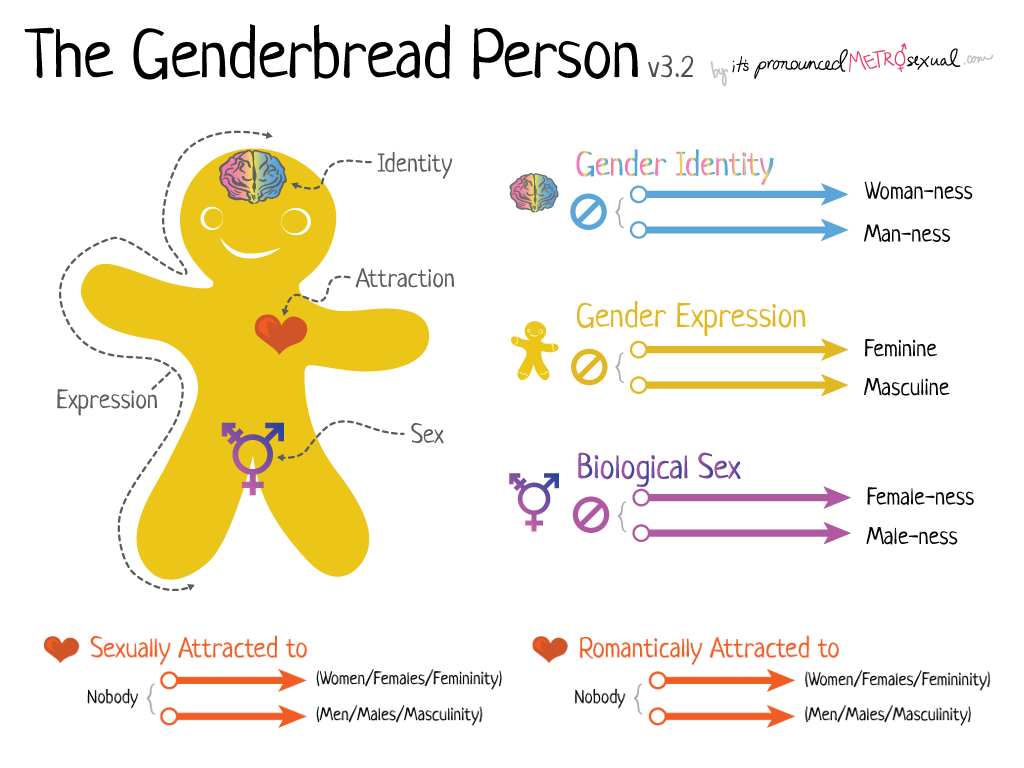
Women are also facing legal consequences for stating biological facts. In multiple countries, women have been threatened with arrest for calling a man a man.One prominent example is Kellie-Jay Keen-Minshull (Posie Parker), a British gender-critical activist involved in legal disputes and public controversies for asserting that biological sex is real.
In March 2023, during her Let Women Speak tour in Auckland, New Zealand, Keen-Minshull was violently mobbed by trans rights activists. Protesters breached metal barriers, doused her with tomato juice, and shouted obscenities, forcing her to abandon the rally for her own safety.
She later recounted fearing she would be crushed to death by the crowd.This extreme hostility highlights the dangers faced by women who challenge gender ideology.
The treatment of women who challenge gender ideology has reached alarming levels. In January 2022, Jennifer Swayne, a disabled feminist from Wales, was arrested for putting up stickers supporting women’s rights.
Gwent Police not only detained her for hours but also searched her home, confiscating feminist books, stickers, and notes.Swayne, who relies on a mobility scooter due to rheumatoid arthritis, described her arrest as “absolutely ridiculous” and likened the police’s actions to those of the Stasi.
Her charges were eventually dropped, but the incident highlights the disproportionate use of police power against women who speak out.
One of the most insidious consequences of gender ideology is the resurgence of homophobia—ironically, under the guise of inclusivity and progressivism. This “woke” homophobia primarily targets lesbians, who are increasingly vilified for asserting their right to same-sex attraction.
A growing trend among Trans Rights Activists (TRAs) is the accusation that lesbians who refuse to date or sleep with trans-identified males are bigots, TERFs, or even sexual racists. The claim is that rejecting a man who identifies as a woman is equivalent to racial discrimination—completely disregarding the fundamental reality of sexual orientation.This narrative is not confined to the fringes of social media.
In 2021, prominent LGBT organisations such as Stonewall UK came under fire for promoting the idea that “genital preferences” are transphobic. In other words, lesbians who are exclusively attracted to women’s bodies are being pressured to “reconsider” their sexuality to accommodate male people who identify as women.
The push to shame lesbians into dating trans-identified males is a deeply disturbing form of sexual coercion. Some lesbians have been bullied into silence or forced to explain, in excruciating detail, why they are not attracted to male bodies. Others have been harassed, ostracised, and even threatened for refusing to comply with gender ideology’s redefinition of sexuality.
The case of Get the L Out, a lesbian feminist group, illustrates the extent of this issue. At Pride London 2018, members of the group staged a protest against lesbian erasure and the pressure to accept trans-identified males as sexual partners.
Instead of engaging with their concerns, LGBT activists chased them out, branding them “hateful” for defending the very definition of lesbianism—exclusively same-sex attraction.
The irony is staggering: while LGBT activists campaign against conversion therapy, gender ideology has reintroduced it under a new name. Lesbians are told they must “unlearn” their so-called transphobia and rewire their attraction to include biological males.
This is eerily similar to the homophobic arguments of the past, where lesbians were told they “just haven’t met the right man yet.” In some cases, young lesbians who question gender ideology are pressured into identifying as non-binary or trans men, reinforcing the idea that being a gender-nonconforming woman is somehow wrong. The result? A new form of lesbian erasure, dressed up as progress.
Despite the hostility, more lesbians are speaking out against this “woke” homophobia. Groups like Lesbians United and LGB Alliance are pushing back against the pressure to redefine same-sex attraction as “same-gender” attraction. Their message is simple: lesbians do not owe anyone their bodies, and their boundaries are not up for negotiation.This is a crucial fight—not just for lesbians but for women’s rights and sexual autonomy as a whole. The resurgence of homophobia, even under a progressive banner, must be called out for what it is: an attack on female autonomy and the right to say no.
In September, the Lesbian Strength march takes place in Leeds city centre, organised by women who feel excluded from mainstream Pride events. Approximately 50 women marched with signs reading Lesbian is not a bad word and Lesbian love is beautiful. However, the march was met with a counter-protest of similar size by trans rights activists chanting, “We’re here, we’re queer, we stand for trans rights”. Police intervened to keep the groups separate as tensions escalated. However a member (of Antifa) of the opposing side managed to set fire to our sign & even posted it online with zero consequences.
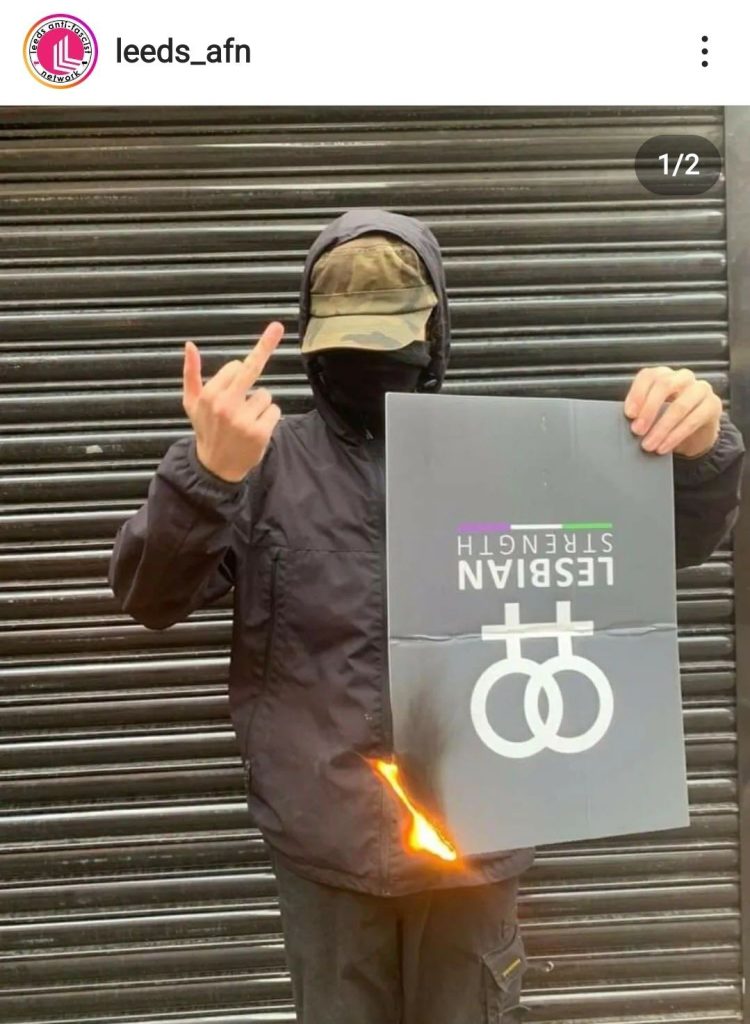
This incident underscores the deepening divisions within the LGBTQ+ community over issues of gender and sexuality.
The gender-affirming care industry is now a multi-billion-pound market. Pharmaceutical companies make massive profits from puberty blockers and cross-sex hormones, ensuring a lifelong dependency on medical interventions.
Puberty blockers like Lupron Depot, produced by AbbVie, can cost over £300 per month per patient, with total revenues reaching £620 million in 2021.The pharmaceutical industry spends hundreds of millions lobbying for policies that support gender ideology, ensuring long-term patient dependence on these drugs.
One day, we will look at gender-affirming surgery the same way we view lobotomies—as a barbaric medical scandal that harmed thousands under the guise of “progress.” The removal of healthy breasts, genitals, and reproductive organs in the name of gender ideology will be remembered as a tragic failure driven by bad science, social pressure, and financial incentives.
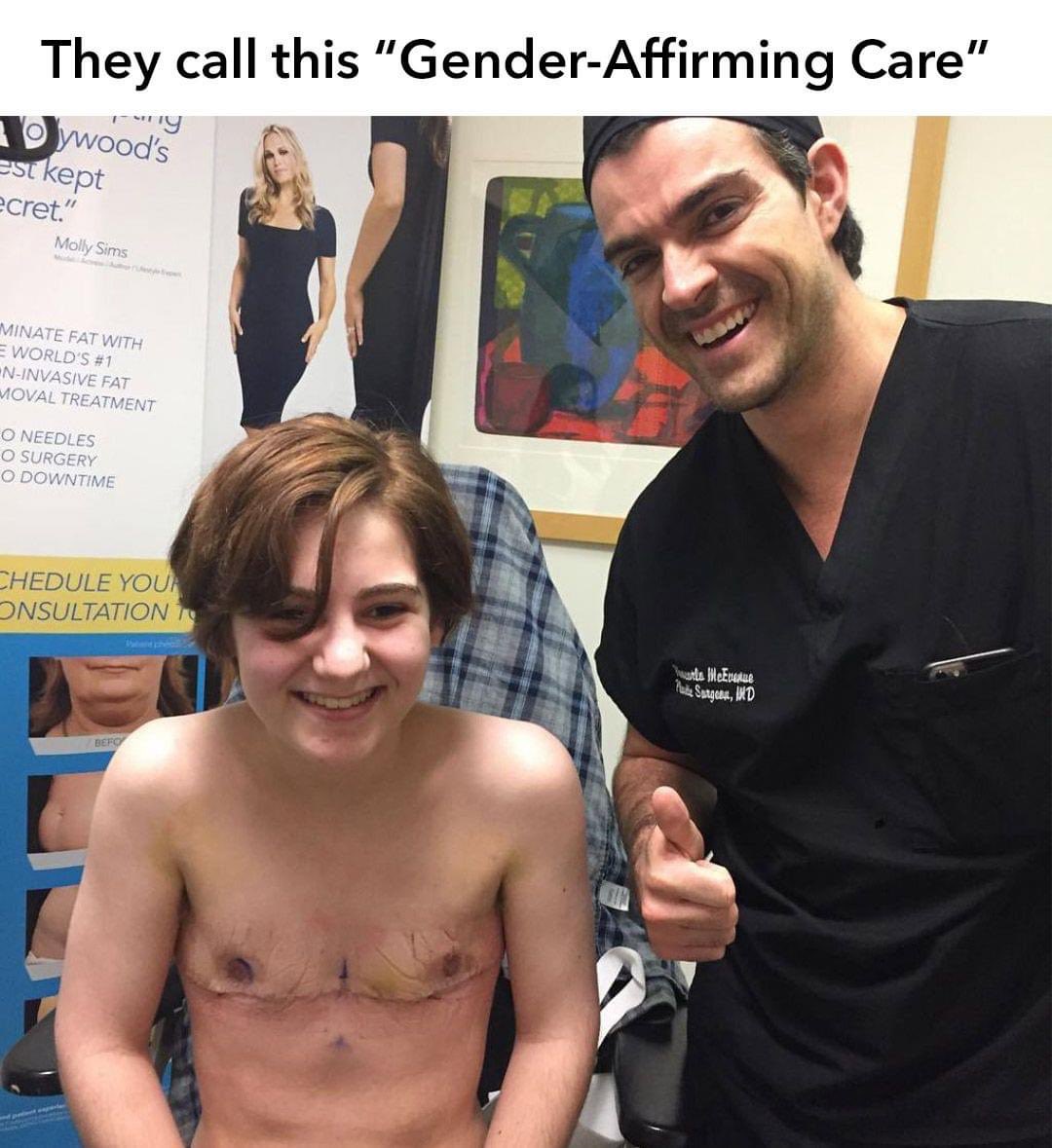
Standing up for women’s rights in the face of gender ideology comes at a cost, and I have experienced this firsthand. For simply speaking out, I have been physically attacked. I have been shoved, grabbed, and threatened by those who claim to be fighting for “inclusivity”—yet their response to dissent is violence.Beyond physical aggression, I have been subjected to relentless verbal abuse. I have been called a “TERF,” a “fascist,” a “racist,” a “Nazi,” and a “bigot” simply for stating biological facts and defending women’s spaces.
These slurs are used to silence and intimidate, to shut down conversations that desperately need to happen.But I am not alone. Many other women have faced similar attacks—online harassment, job loss, even legal consequences—for daring to say that women’s rights matter.
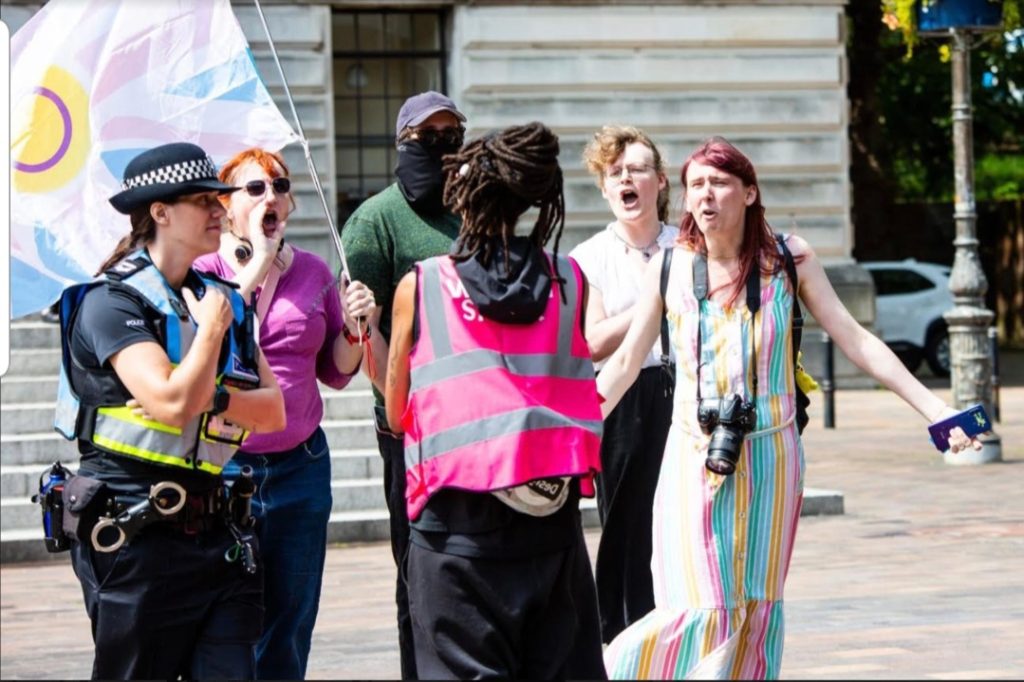
The consequences of gender ideology impact the rights and wellbeing of everyone—men, women, and children.
We must resist the pressure to conform to an ideology that seeks to dissolve the reality of sex. Women’s rights were not handed to us—we fought for them. And we will fight to keep them.
© The Uncensored Patriots - 2025. All rights reserved. Web design and maintenance by Consiliuma. Articles by TUP Community Members.